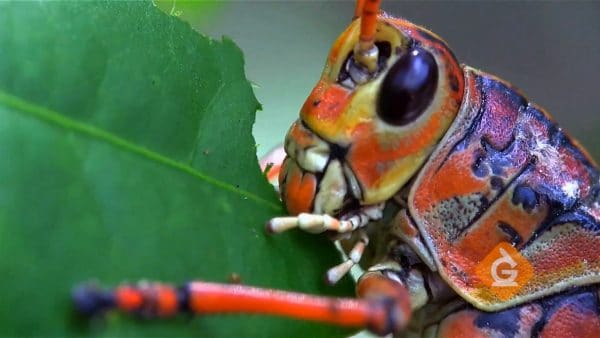Ecosystem Definition
An ecosystem is a community of interacting organisms and their environment. For example, a forest with animals, plants, and a river.
View Lesson on Ecosystems
Become a member to get full access to our entire library of learning videos, reading material, quiz games, simple DIY activities & more.
Become a member to get full access to our entire library of learning videos, quiz games, & more.
Plans & Pricingto watch this full video.

Access All Videos
and Lessons, No Limits.
Access All Videos

No credit card required,
takes 7 sec to signup.
No card required

Ready-to-go lessons
that save you time.
Ready-to-go lessons
If you are on a school computer or network, ask your tech person to whitelist these URLs:
*.wistia.com, fast.wistia.com, fast.wistia.net, embedwistia-a.akamaihd.net
Sometimes a simple refresh solves this issue. If you need further help, contact us.
Ecosystems
Fun Facts
- Rainforest ecosystems only cover about 6% of the planet but produce about 40% of the oxygen we breathe.
- A small puddle with plants, bacteria, and water can be its own ecosystem.
- Some trees respond to seasonal changes in their ecosystem by losing leaves to conserve resources during the winter.
Why Do We Need To Know About Ecosystem
Studying ecosystems helps you see how all forms of life are connected and why it’s important to keep a wide variety of living things. Plants are a key part of ecosystems. They give food and shelter to different animals, showing why plant science is important for protecting nature.
When you learn about ecosystems, you also learn how humans can affect nature in good and bad ways. This includes controlling harmful species, fishing in a way that doesn’t harm the environment, and farming without causing pollution. Jobs in environmental science, studying the ocean, and farming science are important for keeping ecosystems healthy.
Frequently Asked Questions
Check out the Full Lesson on Ecosystems
In this lesson, we learn that:
- An ecosystem is a community of interacting organisms & their environment.
- Organisms only survive in an ecosystem when their specific needs are met.
- Newly introduced organisms can throw off the balance of an ecosystem.
- A healthy ecosystem has many different kinds of organisms.
Related Topics
- Algae Definition
- Amplitude Definition
- Binary Code Definition
- Chloroplast Definition
- Circulatory System Definition
- Collision Definition
- Competition Definition
- Conductor Definition
- Continental Drift Definition
- Definition Of Engineering
- Earth’s Axis Definition
- Ecosphere Definition
- Ecosystem Definition
- Energy Conversion Definition
- Engineering Definition
- Evaporation Definition
- Food Chain Definition
- Gas Definition
- Geologic Time Scale Definition
- Germination Definition
- Groundwater Definition
- Hearing Definition
- Heating And Cooling Definition
- Inclined Plane Definition
- Invasive Species Definition
- Latitude Definition
- Limited Resource Definition
- Magnetic Poles Definition
- Material Definition
- Metamorphosis Definition
- Molecule Definition
- Newton’s 2nd Law Of Motion Definition
- Orbit Definition
- Phases Of The Moon Definition
- Properties Of Matter Definition
- Property Definition
- Rain Gauge Definition
- Reflecting Surface Definition
- Renewable Energy Definition
- Season Definition
- Sediment Filter Definition
- Simple Machines Definition
- Smelling Definition
- Sound Wave Definition
- Tissue Definition
- Virus Definition
- Weather Definition
- Weight Definition


Start a Free Trial Today. Get a $5 Amazon Gift Card!
Teachers! Start a free trial & we'll send your gift card within 1 day. Only cards left. Try it now.
Select Grade
Select Subject
This email is associated with a Science Kit subscription. Kit subscriptions are managed on this separate page: Manage Subscription

-
Download InvoiceScience & Math$/yr
-
Download InvoiceScience Only$/yr

access all lessons
• No credit card required •
"My students loved the videos. I started the video subscription in May and used them as a review before the state test, which I know contributed to 100% of my class passing the state test."
Rhonda Fox 4th Grade Teacher, Ocala, Florida
Use Generation Genius in Your School
Access all lessons free for 30 days.
"My students loved the videos. I started the video subscription in May and used them as a review before the state test, which I know contributed to 100% of my class passing the state test."
Rhonda Fox 4th Grade Teacher, Ocala, Florida
• No credit card required •
Already a member? Sign In
* no credit card required *

* no credit card required *
* no credit card required *

Get District Quote
Discounts start at 3 schools.
Sent!
Thank you for your inquiry.
We will email you a quote as soon as we can.

to Discover the Benefits of Generation Genius
Learn How to Save for Your School & District!
Please login or create an account to access additional resources

no credit card required
Skip, I will use a 3 day free trial
Enjoy your free 30 days trial
-
Unlimited access to our full library
of videos & lessons for grades K-5. -
You won’t be billed unless you keep your
account open past your 14-day free trial. -
You can cancel anytime in 1 click on the
manage account page or by emailing us.
-
Unlimited access to our full library of videos & lessons for grades K-5.
-
You won't be billed unless you keep your account open past 14 days.
-
You can cancel anytime in 1-click on the manage account page.
Cancel anytime in 1-click on the manage account page before the trial ends and you won't be charged.
Otherwise you will pay just $10 CAD/month for the service as long as your account is open.
Cancel anytime on the manage account page in 1-click and you won't be charged.
Otherwise you will pay $10 CAD/month for the service as long as your account is open.
We just sent you a confirmation email. Enjoy!
Done



























































































































 GENERATION GENIUS
GENERATION GENIUS